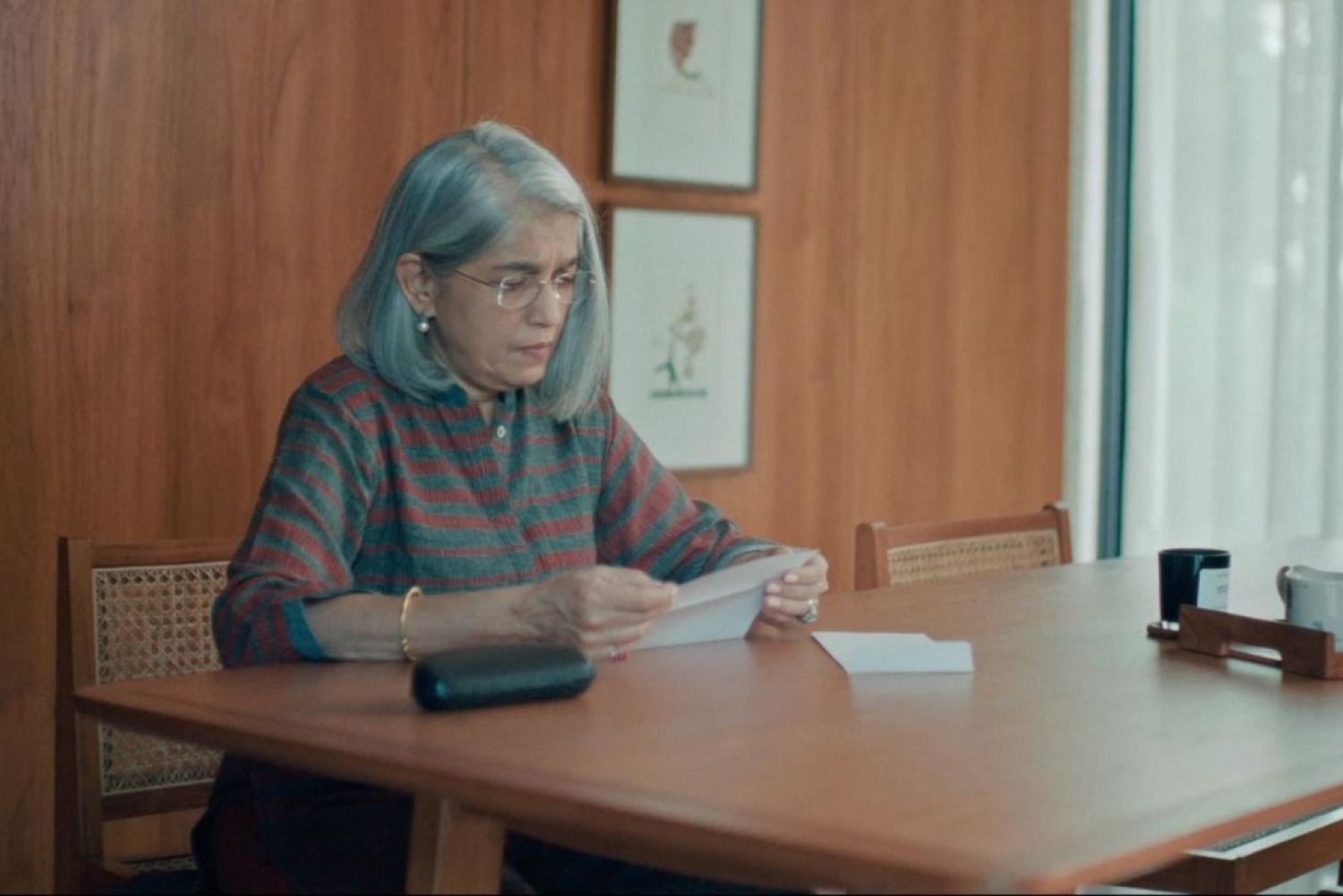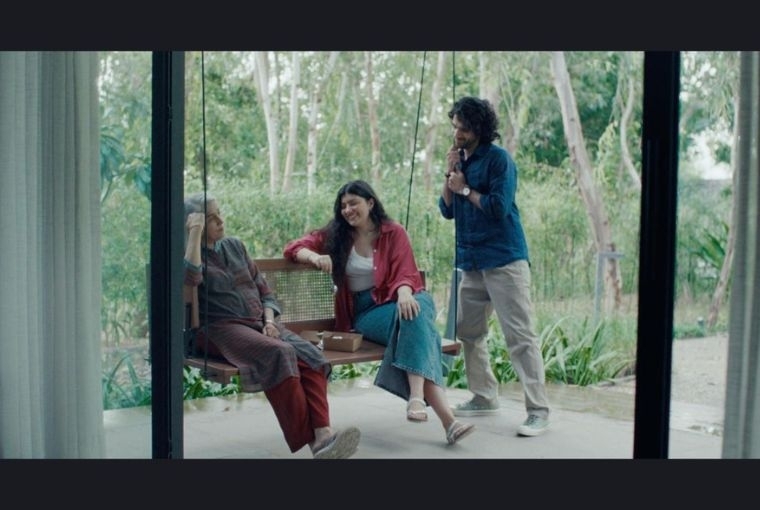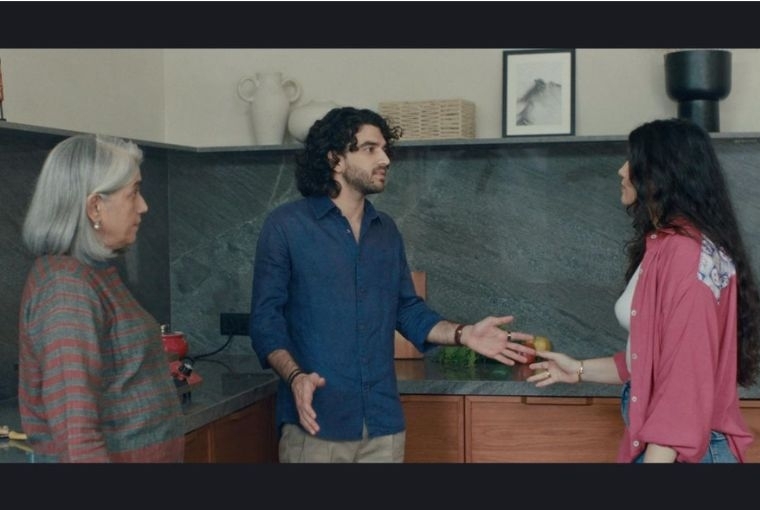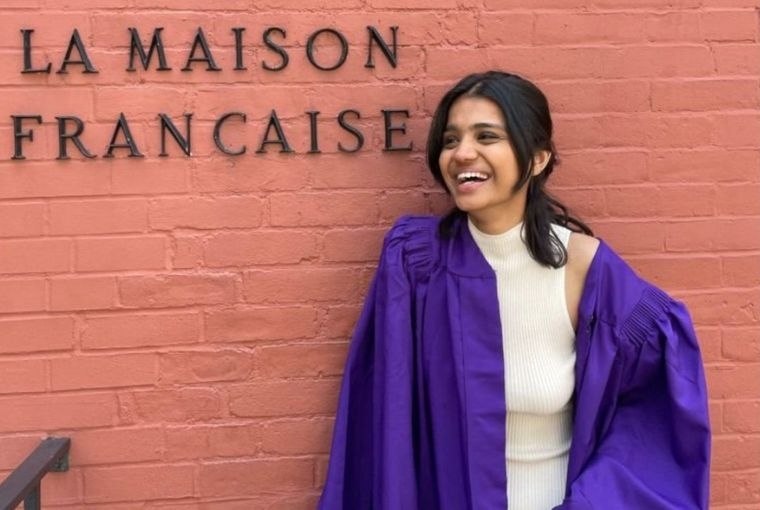

The unconventional dynamics between a mother and a daughter have long been deeply complex and not talked about enough. In Anvita Brahmbhatt’s short film, Over a Cup of Chai, the film plays over an evening with a mother and her daughter, with their emotional upheaval at the centre of it. The other nuances in the film reveal themselves as just manifestations of something deeper.
The film takes one of its protagonists [the daughter] through adolescent solipsism to recognition and gratitude, through certain fumblings of romance, through the unresolved and ever-mounting tensions of family life and the acknowledgement of its hard material practicalities, to a radiant reconciliation with her mother, and herself.
We delve into the narrative and how Anvita adapted it for the screen.
Can you tell me a little about your beginnings?
I was born and raised in Ahmedabad, Gujarat. My parents are both civil engineers by profession, and my father runs a real estate business, and my mother raised my sister, Anahita, and me. My sister is an architect. We are a tightly knit family of twelve, and everyone with an inclination towards design. My social life in the city has always been with architects and designers. Ahmedabad is famous for that. I have spent many evenings at CEPT University, having nothing to do with architecture myself. It is a part of me, though, design. It affects how I view location in film. Growing up was mostly that: random visits to dad’s construction sites, trying to excel at school (but only really enjoying and doing good in English), spending time with my parents, bothering my older sister, and being spoiled by my grandfather. I wouldn’t call myself an introvert, but I seeked time for myself. I always felt I did not fit in; it felt quite lonely. I wasn’t a part of the high achievers in academia or sports, or any particular extracurriculars. I found solace in reading and sometimes dabbling in writing. Spending nights watching movies with my family was a highlight. Going to art exhibitions and museums, and travelling, made me feel weirdly seen in places where no one knew me.

What was the starting point for your short film?
After working on the initial drafts, I felt an urge to make the film. Early on, it was just me finding a distraction from a marketing job I wasn’t the most satisfied with. Later, I grew closer to the project and felt the need to make it happen. I am part of a WhatsApp group called the Women Film Circuit, and I asked for help to produce it (mainly logistics, and then maybe funding). Mahima, another member of the group, instantly replied, and we started working on the many moving components of making a film. Somehow, with a lot of grit and resilience and big tears, I was able to convince my parents to fund this passion project (I watched La La Land way too many times to give up). And then came the edits to the drafts, interviewing and finalising crew members, conversations with actors, script readings and rehearsals. I spent a lot of time doing prep work with my absolute phenomenal cinematographer, Riya Khicher and then came the shoot.
It’s set in a beautiful house. Where did you find it?
I am being asked this question the most. The answer is a bit complicated. I started shooting in an apartment I was renting in Bombay. However, after 4 hours of shooting, the secretary of my building called me and, in not-so-nice words, demanded I stop shooting instantly. It was a very difficult and nerve-wracking moment. I decided to move the shoot to my hometown, Ahmedabad. My father, who is also an executive producer for the film, let me shoot at a golf course which he developed [he owns a real estate company in Ahmedabad] and we somehow in less than three days' worth of prep shot at the sample villa there. My cinematographer can attest to the horrors of shooting a film set in real time with 12-foot-long glass doors!! But yes, I am incredibly grateful to my family at home helping me with the crazy move, and for not letting me give up.
Can you talk a little about the incredible cast you put together?
I think Mahima and I shortlisted a few names I wanted to work with, whose works I had admired and was inspired by. Out of those names, we were in conversation with a few of them. With Dalai, I instantly felt a connection as an artist. We were able to have multiple conversations and create the essence of Nitya [her character]. She was always open to dialogue, asking questions and empathising with Nitya’s inner conflicts. There was also an understanding with both of us being young daughters and resonating with the need to understand our mothers. What drew me to her was her performance in season one of Made In Heaven. It was such a young role but with so much depth: it was a grey and complex character, and her authenticity stood out to me.
With Danesh [Razvi], I remembered watching his performance in A Suitable Boy, and he has a calm and secure demeanour. He already felt like the perfect fit for Aryan, and after initial conversations, I decided to work with him. He took direction well, and he played the quiet yet resilient partner very well.
For Gaurav (the father), there were again a few names we shortlisted, but I kept going back to Aamir Bashir. There is something so soothing and reflective in his voice. He helped me write parts of that monologue when I felt I was stuck, and it was one of the most creatively engaging moments I have witnessed as a writer-director. Even though it was a one-day recording session, I learnt so much from him. He carries his artistry with such grace, I am indebted to him for giving voice and life to Gaurav.
Lastly, after watching so many of her performances and listening to almost all her interviews, I felt drawn to Ratna Pathak Shah as Saira. It was challenging [to say the least] to work with someone of her calibre.
She, being quite senior in her craft and age, did things a certain way, and that did not always sit well with me or the crew. But we all learnt a lot in the process. My education trained me in a certain way when it came to directing actors, so when things were completely different, I was disheartened. But I am happy that I had this experience. I learnt so many things, and it prepared me for many more shoots.

The narrative deals with something deep that many grapple with: where did the story come from, and what was the writing process like?
Difficult conversations between my mother and me, my sister and my mother, and more so, communication gaps in an attempt to protect the peace in the family, mainly guided my writing for the film. A very human, and innate need to understand my mom, Priyanka, without the labels of a wife, or homemaker, or mother, or daughter, inspired this film. Watching Ladybird by Greta Gerwig was always an inspiration to write an unconventional mother-daughter dynamic.
In terms of process, I write characters first, and then the plot follows. I put a few points on a Google Doc, watched a few scenes and movies, and started drafting the script. I wrote a few drafts, and shared them with fellow writer friends [shoutout to Harry Diamond!] I shared a draft with the actors, and then came the edits. I think writing ends at the edit, till then the changes continue. Writing anything personal takes a toll on a writer- I was incredibly attached to these characters and this story from the very first day. I kept thinking of it as an homage to my mom: my way of apologising on the days I did not understand her, and reminding her that no matter the arguments and miscommunications, I will always love her. I will always be a part of her. On difficult days, production issues, rifts with actors, days I wanted to give up on the film, that very reason kept me going. I wrote from a place of personal experience, and to make peace and continue to evolve in my relationship with my mom. Knowing that my film continues to resonate with many people and forces them to have uncomfortable but important conversations with each other is surreal. I find that to be the greatest privilege of being an artist.
What sort of themes would you say you gravitate towards?
Themes about, around, revolving within the human condition, and the human psyche. I think we, as filmmakers, have a responsibility to not only speak our truth but remind our audiences that hope will prevail, that love heals, and that they truly are not alone. The impact of good cinema on me and my life is so overwhelming. To create art that sparks conversation has always driven me to themes of family relations, romance, socio-political elements, and coming-of-age. I like to explore loneliness, the power of conversation, and accepting the greys in our shared humanity in my scripts.
What are you working on next?
In less than a few hours from when I am writing this, I am flying off to New York with my partner, Akaash [who might just be my biggest fan, and cheerleader!] because this little film that my resilient crew and talented cast gave their time and effort to, is premiering at the New York Indian Film Festival! It is surreal to go back there. After I am back, I am awaiting responses from a few more festivals, and then I am hoping to sell the film to an OTT platform. After Over A Cup of Chai finds its home, I guess I will officially stop procrastinating and write my next short film. To any funders and movie enthusiasts reading, reach out and support indie cinema!
Words Hansika Lohani
16.06.2025

Filmmakr, Anvita Brahmbhatt